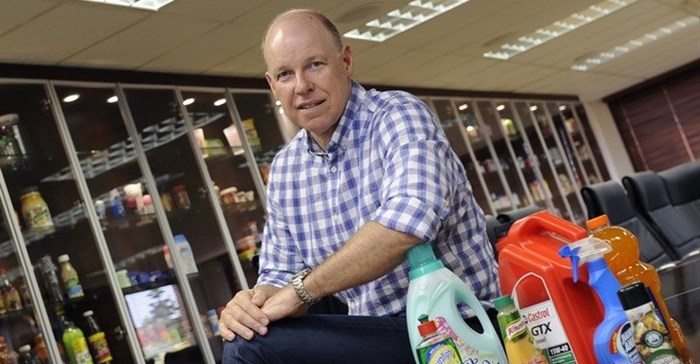
Top stories






More news


Marketing & Media
Ads are coming to AI. Does that really have to be such a bad thing?














The plastic packaging group’s share price is drifting sideways at more than a 50% discount to its net asset value. This suggests a faster recovery than the market has realised.
The discount, together with a tiny R506m market cap, make Astrapak a sitter as an acquisition target.
Something could already be in the air. The company has been trading under a cautionary since January.
A would-be buyer would find no anchor shareholder in its way. Astrapak’s major shareholders are private equity fund Lereko Metier Capital Growth Fund (with a 29% stake), Coronation (25%), Sanlam Investment Management (8%) and Element Investment Management (5%). All are likely to be willing sellers at the right price.
A buyer would get a radically restructured company, re-equipped with world-class machinery and supplying a number of multinational fast-moving consumer goods (FMCG) clients on long-term contracts. The focus is on high-end rigid plastics packaging, with key market segments in food, automotive and personal care, and toiletries.
The task of restructuring Astrapak has been up to Robin Moore, who was appointed CEO in October 2012. He faced a daunting task in bringing order to a group cobbled together by Ray Crewe-Brown, CEO between 1997 and 2008.
Through an aggressive acquisition strategy, Crewe-Brown built SA’s largest plastics packaging company. But it was heavily overgeared and had 23 business divisions largely free to compete with each other.
"We had a five-year plan," says Moore. The first two years were to get Astrapak into the right place."
For Moore, this entailed slashing the number of operating divisions to seven and exiting the flexible plastics sector, which he expects will become increasingly competitive.
The biggest flexible packaging exit came in March 2015, with the sale of East Rand Plastics (ERP) to Transpaco for R77.5m.
The sale drew a notable comment from Transpaco CEO Phillip Abelheim. "We bought a great business. I feel Astrapak should never have sold ERP," he told the Financial Mail recently.
Moore disagrees. Beyond his concerns about flexible packaging in general, he says ERP relies on scrap plastics, much of which it buys in.
"We did not want the risk of relying on a third-party supplier," he says.
Astrapak is all but done with its clean-up.
Just three flexible plastics units are now held for sale as discontinued operations. But they are profitable and expected to rake in about R400m in cash for Astrapak. It would leave the company with a net cash position of about R275m.
The final phase of Moore’s strategy is to achieve "optimal profitability".
He believes Astrapak is well on its way, despite a headline loss of R5.6m from continuing operations in the six months to August.
Profits were eroded by costs incurred on the final commissioning phase of two major FMCG contracts, and the costs of consolidating manufacturing facilities and downsizing and relocating the group’s head office from Gauteng to Durban.
"Restructuring costs are now pretty much over," says Moore. "We will also realise R30m in annual savings on the head office move."
These savings will kick in in the second half of this financial year and fully in the next, says Moore.
Profitability is already rising, with second-quarter operating profit up 49% on that of the first quarter. Moore is looking to lift the operating profit margin from 3.7% in the latest six months to 7%-10% "at some stage in the next financial year".
At a 10% margin, Astrapak on its annualised interim revenue should produce a headline profit of about R58m.
Eliminating all debt will push it to about R85m and place it on a minimal p:e of about six.
Astrapak represents great value, which its patient institutional investors are no doubt well aware of.

For more than two decades, I-Net Bridge has been one of South Africa’s preferred electronic providers of innovative solutions, data of the highest calibre, reliable platforms and excellent supporting systems. Our products include workstations, web applications and data feeds packaged with in-depth news and powerful analytical tools empowering clients to make meaningful decisions.
We pride ourselves on our wide variety of in-house skills, encompassing multiple platforms and applications. These skills enable us to not only function as a first class facility, but also design, implement and support all our client needs at a level that confirms I-Net Bridge a leader in its field.
Go to: http://www.inet.co.za